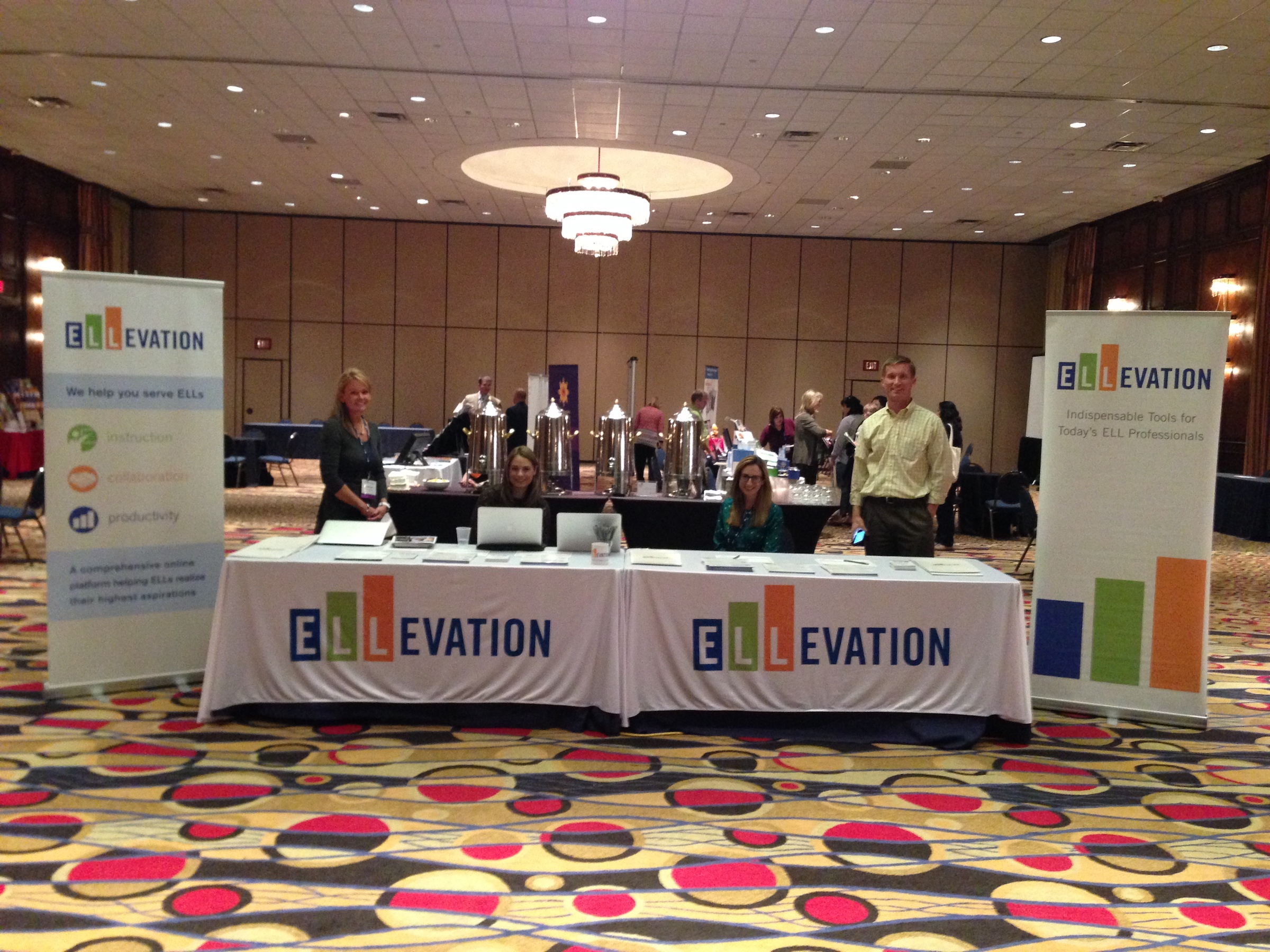4 Observations from WIDA 2014
We attended the Super Bowl of ELL conferences last week in Atlanta, and have returned to Boston grateful for the experience. As the platinum sponsors of the 2014 National WIDA Conference, we had the pleasure of seeing dozens of friends at our table in the exhibitor room, and learned a lot during the always-busy sessions throughout the day. For ELL nerds like us, the event was better than a Bruno Mars halftime show.
For those that were too busy in the classroom to make the trip, or for those that want to compare their experiences, our team thought it would be fun to share some of our observations from the event. Our “Top 4” list is below, but we welcome other comments as well – what did you find most interesting or insightful about the conference?
- The use of technology continues to grow in school systems, and ELL programs are no exception. While at the conference, we saw presentations on the new ACCESS 2.0 testing model, which will be delivered with adaptive technology that eliminates the need for testing tiers. We also saw presentations from Boston Public Schools about their online / blended PD models, and of course received a lot of questions about our own Ellevation software platform. For a good overview of technology in the field, including a rubric for evaluating new technologies, check out this document from WIDA that prefaced the conference.
- ELL education is a shared responsibility across school systems, and isn’t just for the ESL program specialist anymore. This conforms with our own view of the changing K-12 landscape, but it was nice to see Twitter comments like: “You can implement reform but you have to change the culture of the school around ELLs.” As school districts are increasingly filled with ELL students, excellent instruction for this important population now has the attention of Superintendents all the way to classroom teachers who now realize they need to be language specialists in addition to content specialists.
- The impact of newcomers from Central America is being felt acutely by school districts from across the Consortium. One district ESL coordinator I spoke with said it this way: “Next year, the focus on Long Term ELLs is going to swing back to the newcomers. We are totally overwhelmed, and don’t have nearly enough support.” In the meantime, those newcomers – just like all students – need good instruction from well-informed teachers, which can be challenging given the lack of data about the students themselves. And, of course, the job is even more difficult given the social/emotional trauma that often accompanies SIFE and refugee/asylee children. Colorin Colorado provides great resources and classroom tips to support refugee students and families.
- WIDA continues to grow. It was great meeting with teachers and coordinators from Tennessee and Indiana, in particular, most of whom were excited to be at their first WIDA conference. I don’t know why WIDA wouldn’t continue to grow, given its robust academic grounding, validated assessment platform(s), and PD support. We expect they will need even more room next year at the conference in Las Vegas!
What were your highlights / lowlights of the conference? How did you bring your learning back to your school or school district? Please share your experiences below.
Other Similar Blogs: Watching WIDA Grow and Learn

